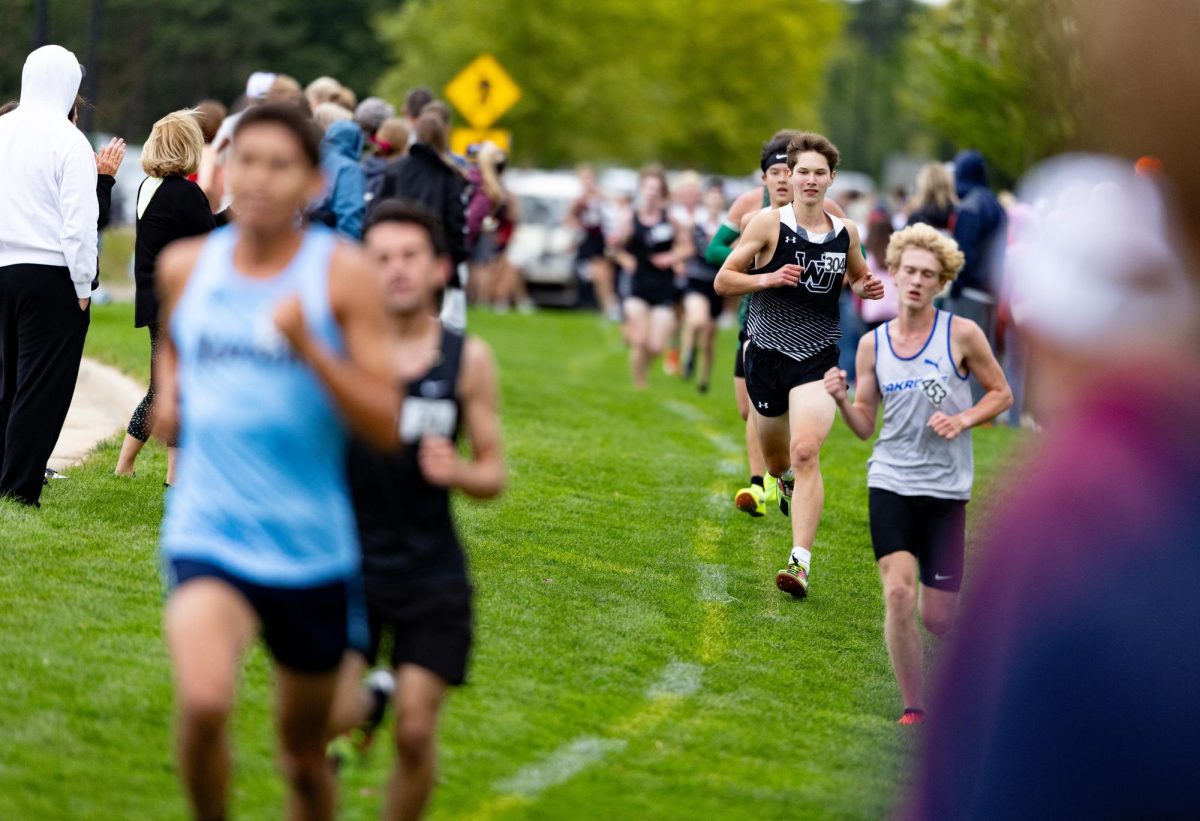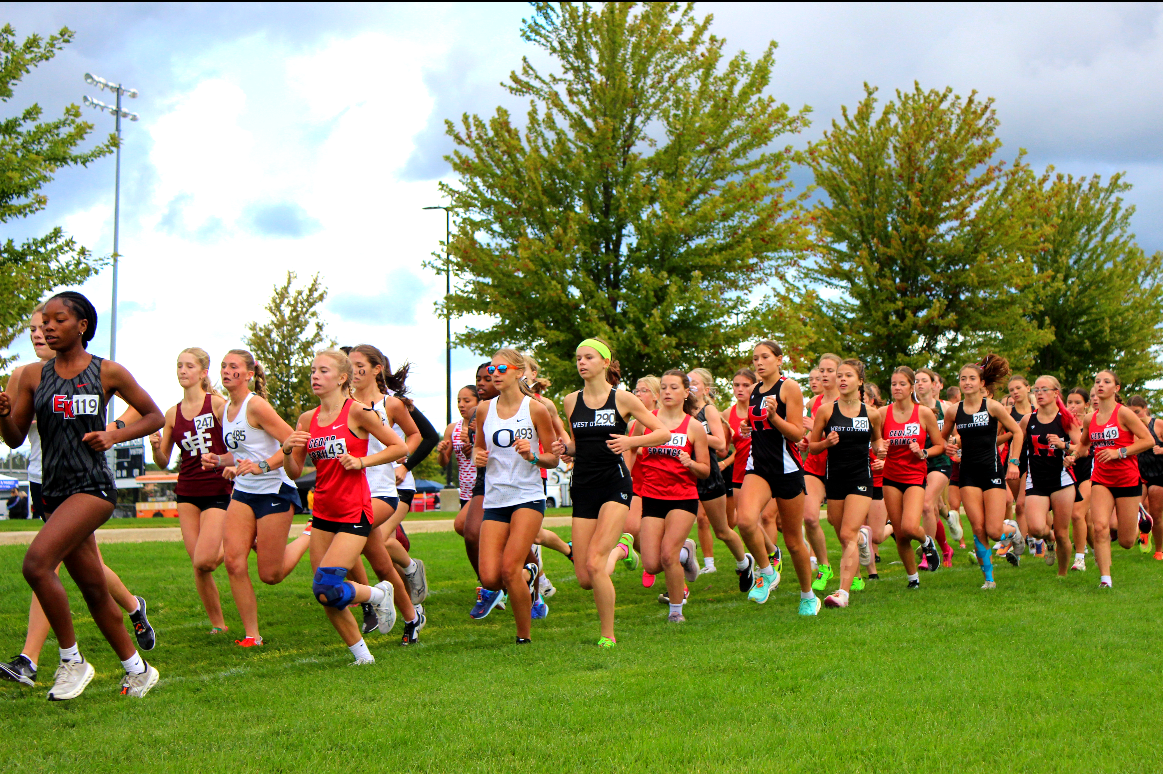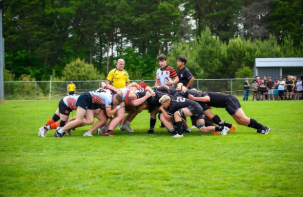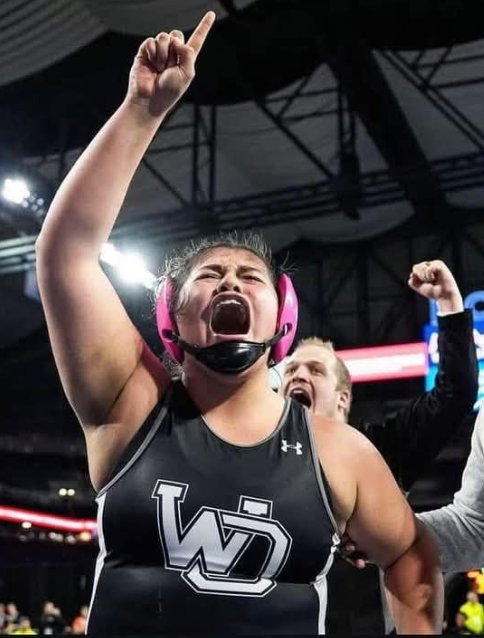High school athletes have a choice: one sport or multiple. We strongly disagree on what path to take.
Single-sport Athletes
There is one path to greatness.
There are not three paths to greatness.
Being great at one activity or being good at a lot of activities. Playing multiple sports, and never seeing the court. Why waste time? Specialize in one sport or don’t play at all. The chance of receiving a DI scholarship in multiple sports is very alone, let alone one sport. Having time to focus on one sport will set athletes apart from those who have to split their attention.
Three-year varsity soccer player Saunder Sotok is a clear example of how becoming a master at one sport is more beneficial. The commitment that he has made to soccer since the summer of freshman year has allowed him to compete with athletes up to three years older than him. “It’s just a part of my day to train or get a workout in and I think a lot of that comes from when I first started and I proved that it is super helpful,” Sotok said. “I can put all my effort into just soccer and all year round it will add up and eventually I will just have way more hours put in.” Having one sport to focus on allowed Sotok to develop his skills and competitive edge, which sets him apart from multi-sport athletes.
Similarly, state champion and Notre Dame commit Helen Sachs says that focusing on running has set her apart from multi-sport athletes. Sachs said, “I am able to commit all of my time and energy into perfecting my performance.” This single-minded focus allows her the opportunity every day to become even more of a “perfectionist” at her sport. Meanwhile, others are overwhelmed with the requirements each sport brings. With a drive to be the best she can, and constant workouts and training, Sachs sees all her hard work lead to success. Chances of seeing development while trying to balance multiple sports are very rare and unlikely.
Frank Lerchen, West Ottawa strength trainer, said, “Focusing on one sport can help an athlete hone the specific skill sets required to excel at that sport.” The key to being great at one sport is honing your abilities. To be great at basketball, you need to hone your shooting. To be good at swimming, you need to hone your stroke. Developing these abilities into perfection will make you great at your sport. Without this focused work, becoming great at your sport would become a far more difficult, if not impossible task.
Multi-sport Athletes
Tom Izzo is widely regarded as one of the greatest college basketball coaches in history, and he is rarely wrong. When he says that multi-sport athletes are often superior athletes, we should take his word. The reality is that athletes benefit from participating in multiple sports. Why dedicate all your time and effort to mastering one skill when you could excel in many things?
Multi-sport athletes are generally more well-rounded than those who specialize in a single sport. Young athletes must be exposed to multiple sports because they are crucial for physical and mental development. Different sports teach different skills, train other muscle groups, and provide a space for fun and learning. The more athletes are exposed to various sports, the more opportunities they have to learn and develop different physical and mental abilities.
Frank Lerchen, West Ottawa’s strength trainer, argues that playing multiple sports improves physical preparedness and skill development. Lerchen said, “Global skill development can increase an athlete’s capacity to learn complex movement patterns throughout their adolescent years at a quicker rate than single-sport athletes, hence elevating their potential ceiling of athletic capabilities.” By actively participating in various sports, athletes build many skills that transform players into well-rounded athletes.
This concept is heard from Michigan State’s men’s basketball coach, who has expressed his appreciation for his players who are multi-sport athletes. Izzo formerly said, ‘“I love two-sport guys…I’ve always appreciated guys that played football, I think it’s still a tougher sport. When you’ve got one of those guys around, I think it benefits you.’” Izzo believes that the toughness developed in football enhances their basketball performance.
A similar concept is true for athletes here at West Ottawa. Jr. Caleb Montgomery plays on the varsity football team in the fall and the varsity baseball team in the spring. Montgomery said, “I think playing multiple sports helps athletes with athleticism overall. Understanding how to move my body and being able to move well helps me in every sport I play.” For Montgomery, football, baseball, and other sports in the past, shaped him into a versatile athlete.
Additionally, Sr. Addison Scholten plays three different high school sports. She played high school basketball for three years in the winter and she currently plays on the varsity volleyball team in the fall and on the varsity soccer team in the spring. Scholten said, “Sports all include components that can transfer from sport to sport. Basketball, soccer, and volleyball are all sports of their own, but each one helps me with the others.” The quick reflexes that Scholten developed from volleyball, benefit her performance on the basketball court and soccer field. Likewise, her speed developed from soccer, helps her excel in basketball and volleyball.
The repetitiveness of playing one sport all year can lead to overuse injuries. Lerchen said, “Playing multiple sports also provides multi-planar comprehensive development of the body’s bones, tendons, ligaments, and muscles, which can help mitigate the likelihood of overuse and overload injuries.” For example, if a baseball player pitcher throws pitches year-round, they are likely to suffer shoulder injuries. When athletes focus on only one sport, the body endures repetitive motions which will cause wear and tear and lead to injury. By switching between sports, the body can have breaks from overuse.
Playing one sport throughout the entire year is draining. As someone who participates in soccer and volleyball and for other multi-sport athletes, burnout is rarely an issue; however, burnout from sports is real for many solo-sport athletes. Lerchen said, “We can’t forget to mention the mental reprieve that can come from transitioning from sport to sport, which can help reduce feelings of burnout…” Participating in different sports throughout the year keeps things fresh and enjoyable, preventing the mental and physical burnout that could come with specializing in a single sport. In the long run, we play sports for fun, so when playing them feels like a chore, why play?
If searching for proof that multi-sport athletes exceed their single-sport competitors, look around at the many great multi-sport athletes here at West Ottawa or hear from experts like Izzo and Lerchen.







